STREETS OF ONEONTA (Life After The Pandemic)
The Forgotten Towns of Upstate New York, is the third photography documentary project in our series, “Life After the Pandemic. Our goal is to explore various areas of New York: capturing the culture around it, as well as examine the effects of the pandemic.
In our latest trip, we explored four areas of Upstate New York’s: Oneonta, Woodstock, and Saugerties, and New Paltz. Each of these towns is unique in its own way with stories and places waiting to be explored. Our first trip was to Oneonta, nicknamed “the city of hills.” Before Oneonta settled on its current name, the town was originally called McDonalds Mills. It was not until 1830 that the township began to go by Oneonta. Long before the city was established, the land was owned and inhabited by the Indigenous ancestors of Algonquin and Iroquoian-speaking Native Americans. It was around 1775 that European settlers would eventually conquer and colonize the land from the Native Americans.
When exploring Oneonta, one may come across historic buildings that have been indexed on the National Register of Historic Places. Some of these places include the Oneonta Theater, the Oneonta Armory, and Bresee Hall. It is, as well, home to prominent residents such as George Winthrop Fairchild, who would go on to become one of the founders of IBM.
Today, Oneonta has established its own relaxed and groovy identity. When traveling, you’ll find that the town offers a wide range of outdoor recreational activities, food options, and art, most of which can be found on Main Street.

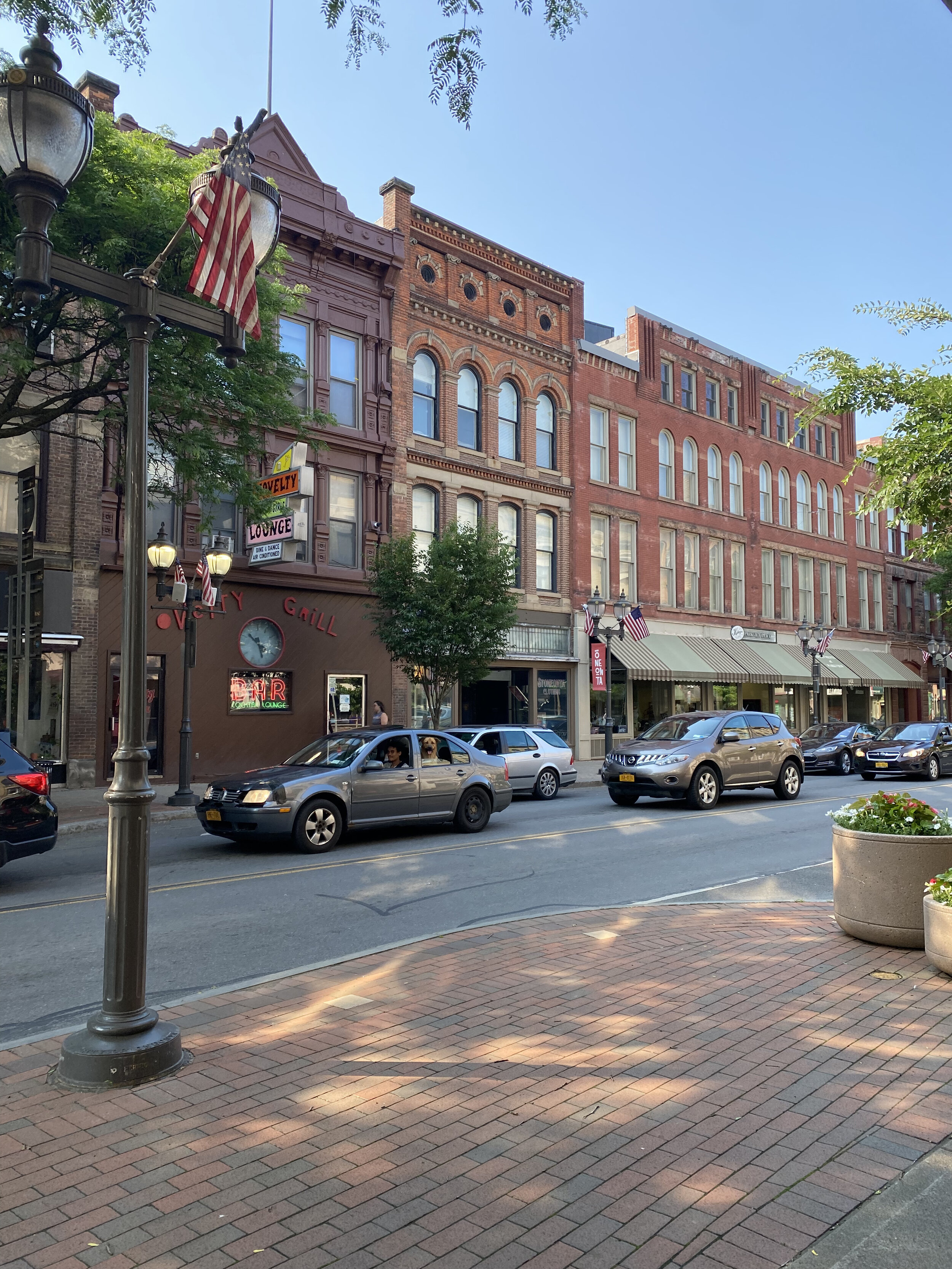
Agriculture is a notable economic activity in Oneonta. The country roads are lined with farms in various states of debilitation. Many farms are thriving; yet, too many are run down, collapsed, and abandoned. These brutal realities are not exclusive to the countryside.
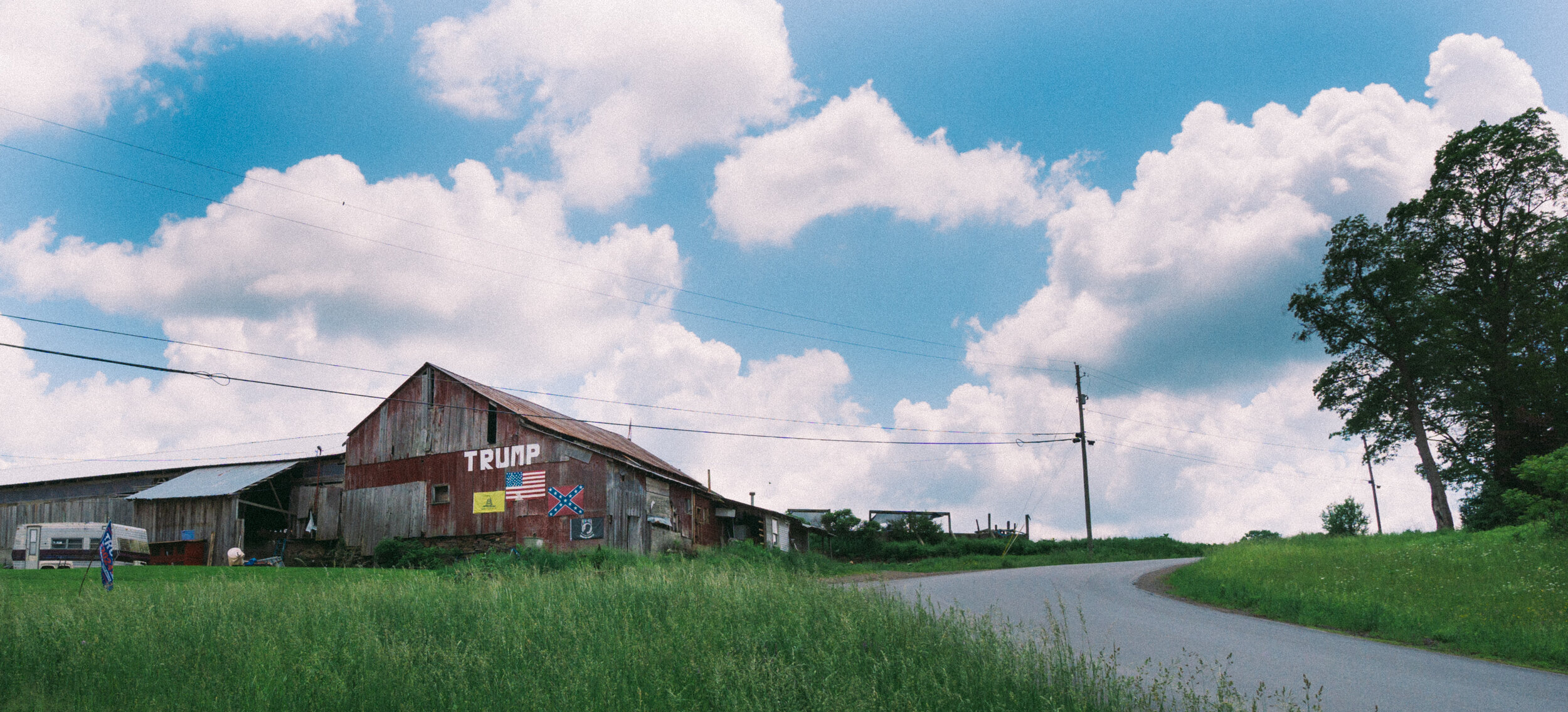




Main Street boasts many up-and-running small businesses, as well as vacant buildings and perpetually closed stores. Is this the result of the Covid-19 pandemic? Or did the pandemic expedite an already looming economic crisis? As we researched later, the poverty rate in Oneonta was 22.2% in 2019, much higher than the average of New York State.
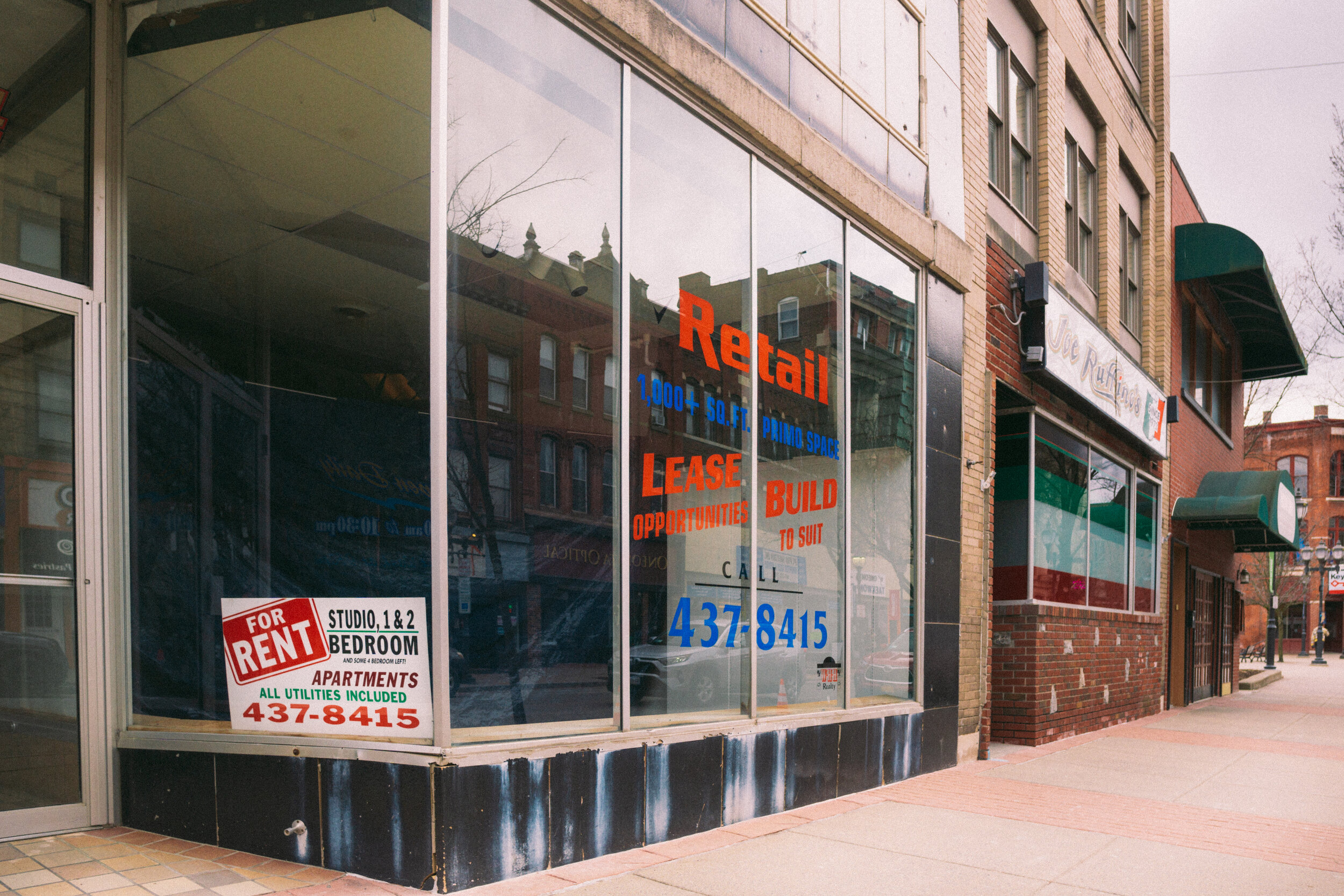
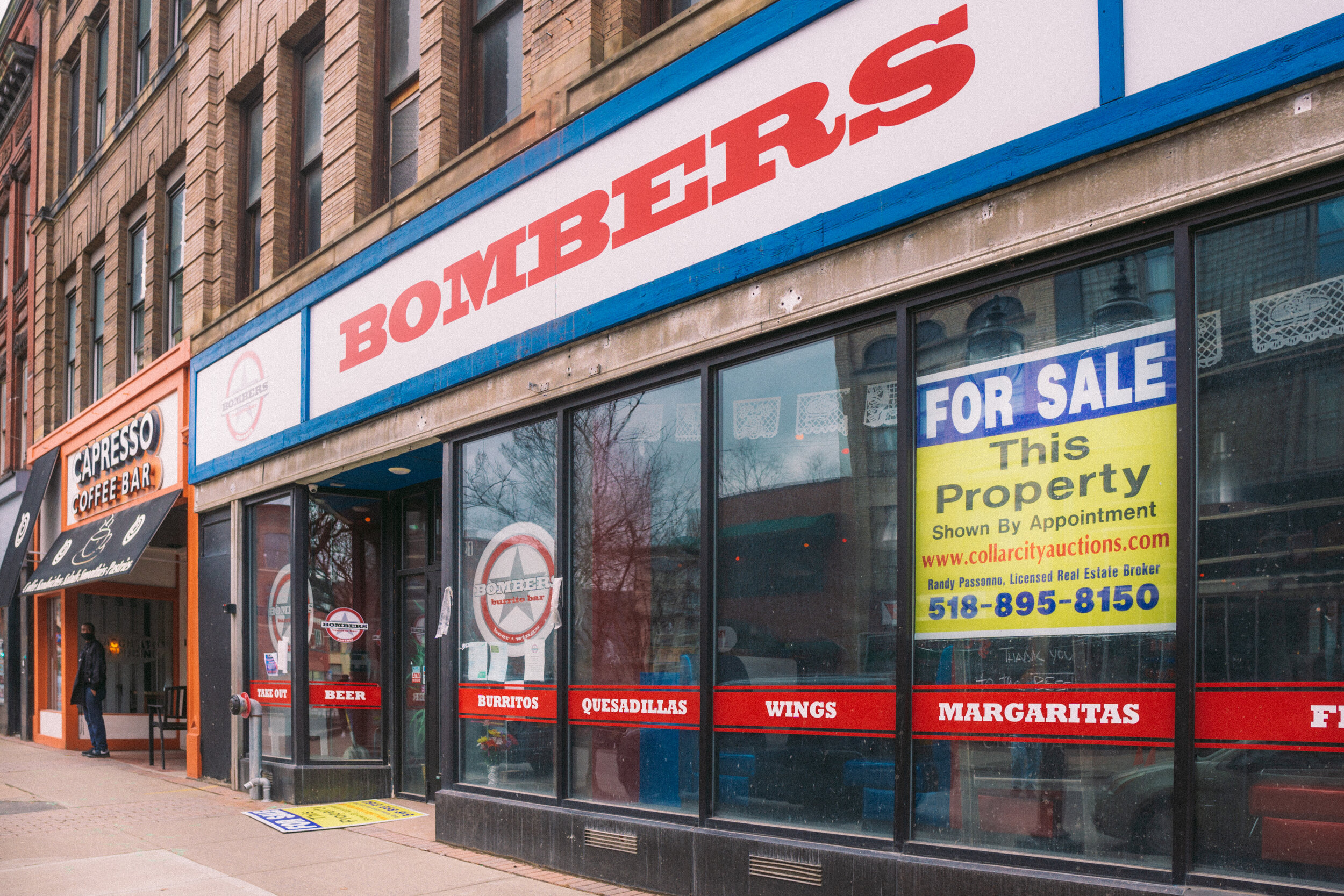

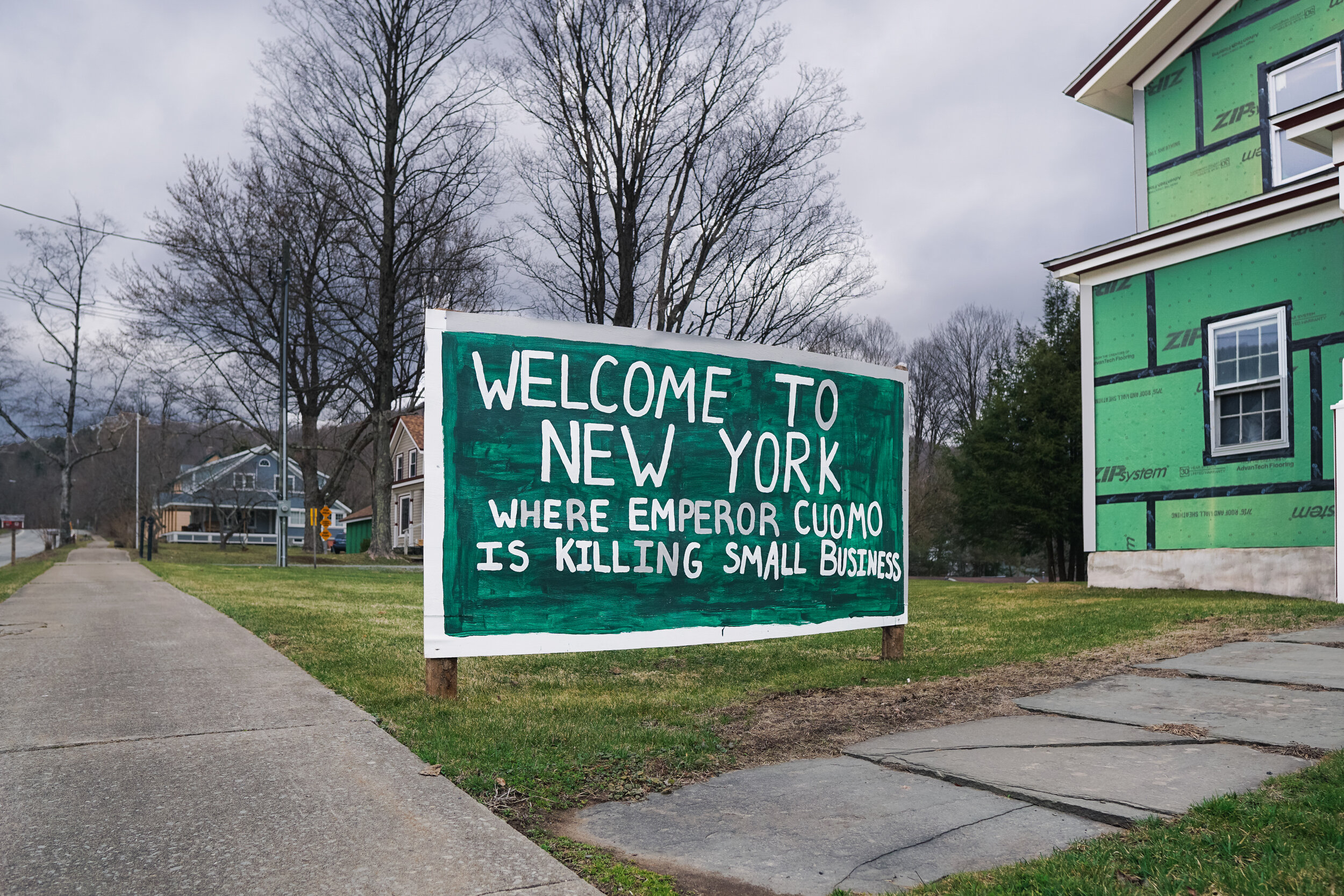
That number does not take into consideration the pandemic’s impact. Is it possible that the people of Oneonta were left behind and forgotten about? ( https://www.city-data.com/poverty/poverty-Oneonta-New-York.html)


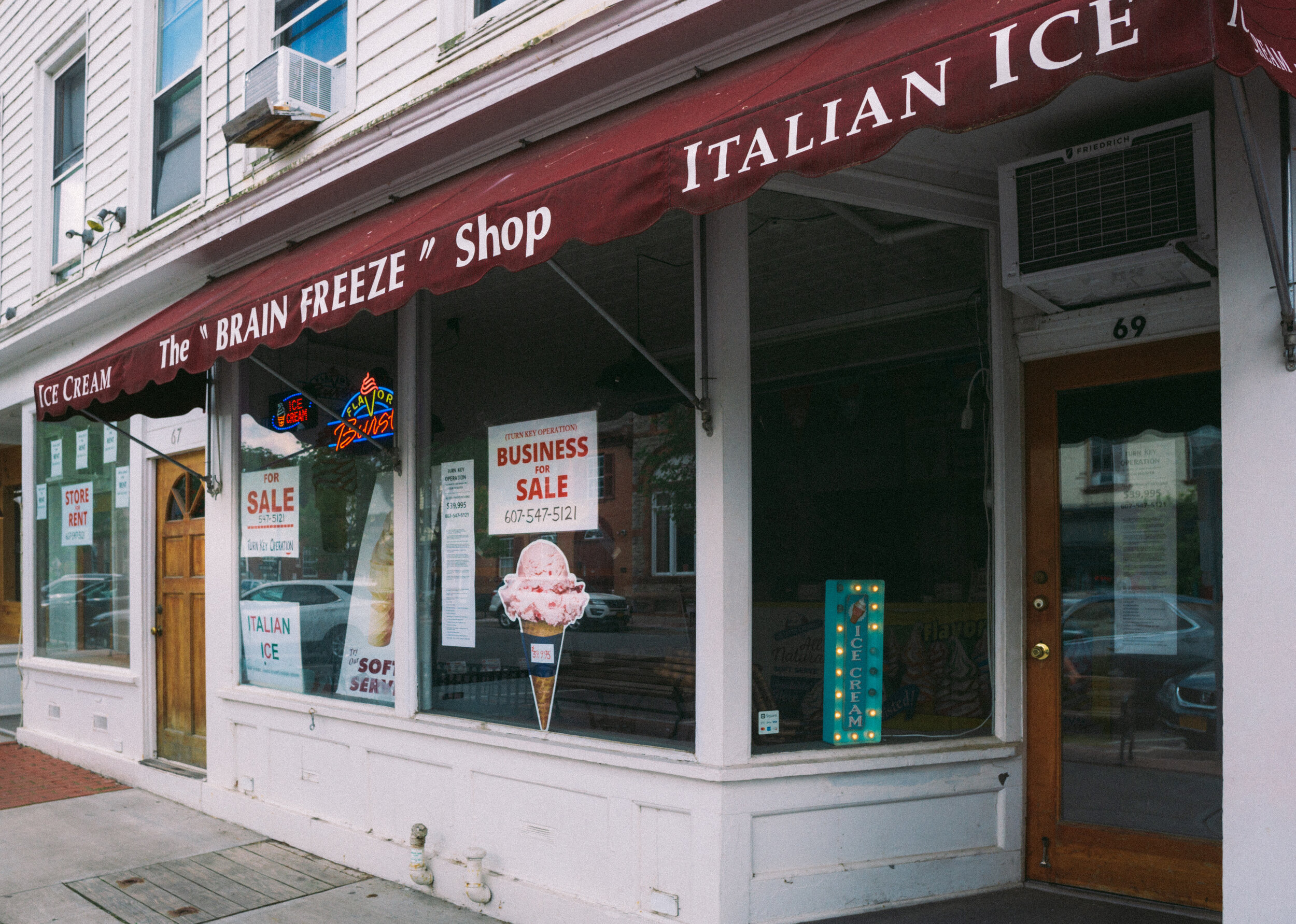

THE UNSUNG HERO’S
Perhaps, however, the pandemic showed which small businesses are vital to their local community. One small business, The Green Toad, is a community bookstore located on Main Street. The sky-high bookshelves and the welcoming environment could have you spending hours there. However, what caught our attention was the owner, Jim Havener, a man who seemed to know everyone that walked through the door.
Mr. Havener attests The Greed Toad’s survival during the pandemic to adapting and understanding your customer base. He had to reform his business model.
“We did two different things. First of all, we did what was most important [which] was home delivery. We physically would deliver what we have here at the store. Even if it was two blocks away, even if it was one paperback compared to five hardcover books.
We traveled all around Otsego County and in the Delaware County. Sometimes I would make a five-mile trip. My staff wasn't here. I own the business so I could still run the business here.
Another aspect we did with our products is that we had two holidays. We had Easter and Mother's Day. So, for example, on Easter, we had things ready for Easter. Especially since it’s a very kid-centric holiday. And the people that couldn't come and visit their family on Easter would actually order gift boxes and we either mail them out or we delivered them to the people.”
Mr. Havener’s efforts did not go unnoticed. People of the community recognized the importance of The Green Toad. Mr. Havener, along with a retired schoolteacher, started a campaign to give children in the Oneonta school district a book called “Hop on Book” that raised around $8000.
When asked what made his business stand out against the rest, what didn’t work for other businesses, Mr. Havener said:
“I think the stores that did not survive were ones that were either food-related and those that could not change their business model. They couldn't get out of what they did.
For example, the coffee shop [next door], Latte Lounge, completely went to delivery and pick up and they kept cash flow going by that way as well. I think if you weren't innovative and creative then you were dead in the water.
The other businesses on Main Street that were not food-related that didn't do well just didn't go out of their comfort zone to try to help their customers.”
The Green Toad is a perfect example of why small businesses are crucial to their local communities. In a day where Amazon has pretty much monopolized most sectors, The Green Toad proves what small businesses have over multi-billion-dollar corporate companies: a genuine connection.
Mr. Havener’s ultimate reflection on the pandemic is not to underestimate the impact of a small business:
“Biggest lesson I learned is how important the store is to this community. It’s important to me and my staff, but really, how important how people went out of their way. You know, just to really do that. I had several customers write checks for $500 and said when this is all over, I'll come and collect on it. One of them kind of has done that...
So really, truly it's just how important a business that you are to the community and how vital it is to the life of the community.”
RESTAURANT OR CULT?
Another business located on Main Street, Yellow Deli, is one of the few restaurants that made it through the pandemic. On the outside, Yellow Deli is inconspicuous, even jovial; but, secrets lie behind its wooden exterior. Walking through the door is akin to walking through a time machine. The restaurant’s interior is a work of art. It is incredibly atmospheric: hand-painted murals on brick walls and vines hanging from the ceiling. The workers conform to one another. The men have thick beards, long hair, and flannels and the women wear modest long skirts, their hair neatly pulled back.

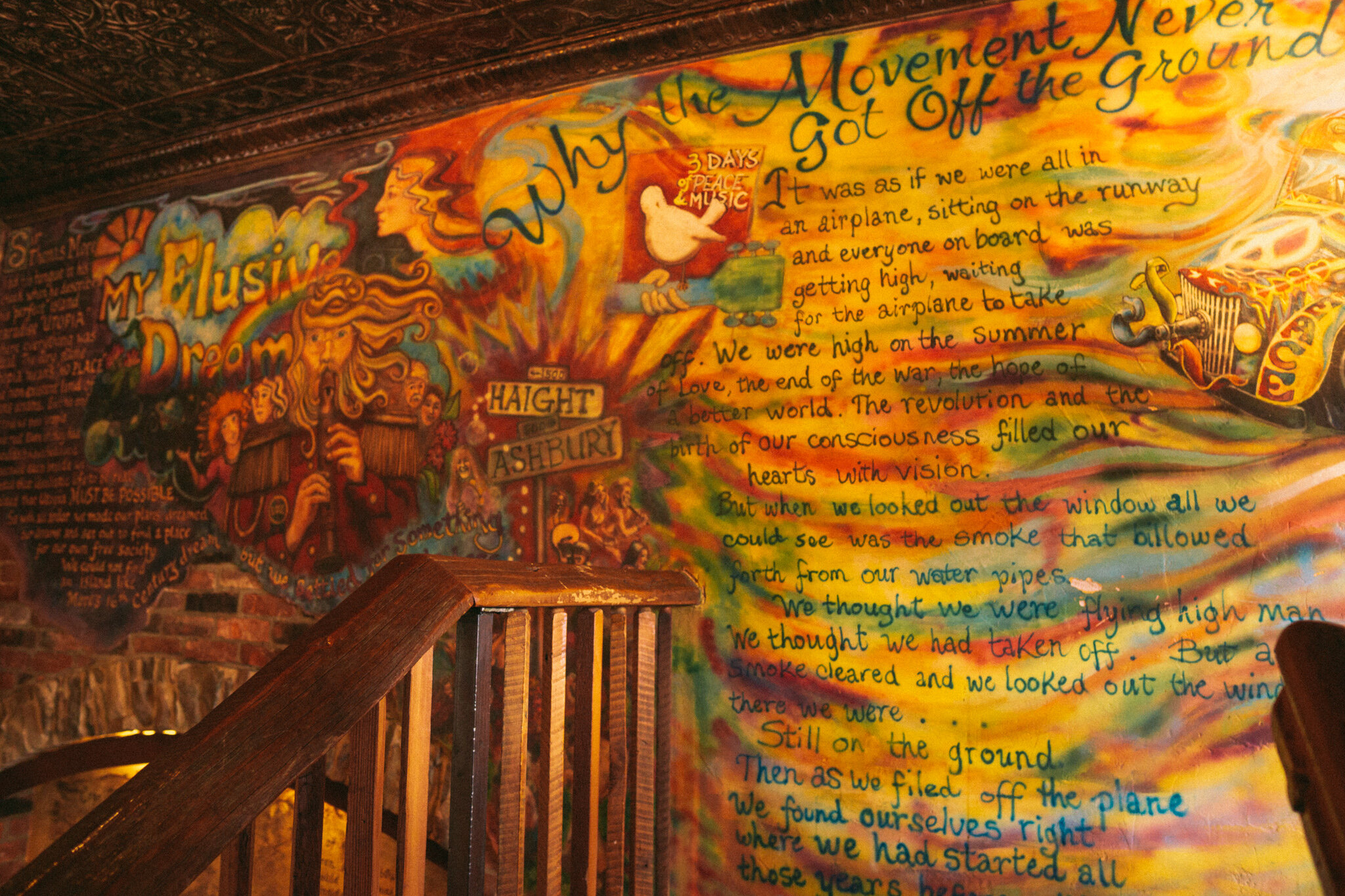
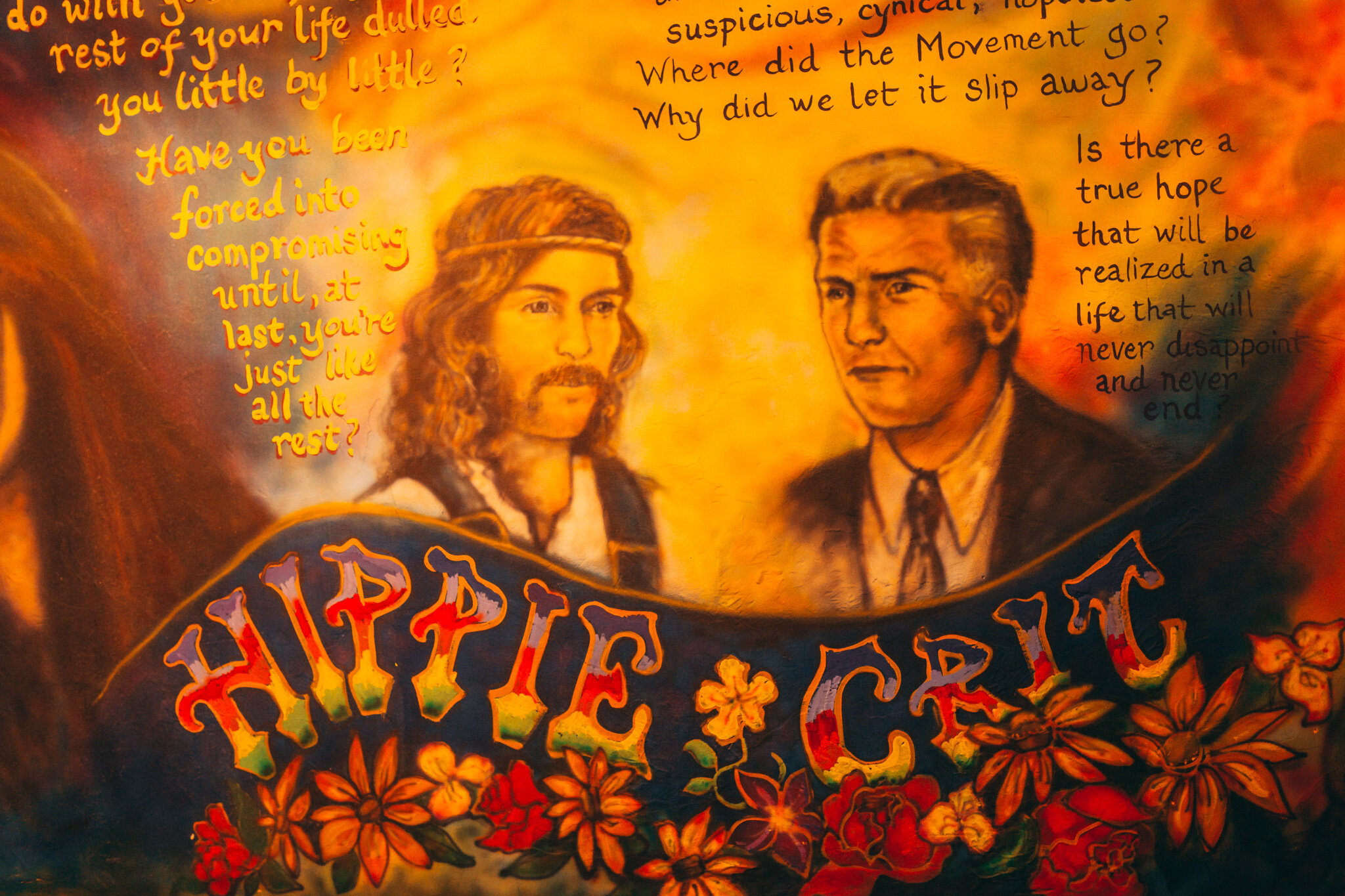

Yellow Deli is actually a chain restaurant owned by a religious community that calls themselves the Twelve Tribes. The Twelve Tribes is a fundamentalist, millennialist religion founded back in the 1970s by Gene Spriggs during the Jesus movement. The group’s beliefs resemble a hybrid of Christian fundamentalism, Hebrew Roots, and Messianic Judaism, though they claim no denomination.
We sat down with one of the members, that goes by the name of “Brother Rori.” He was eager to talk to us about the group’s beliefs and values.
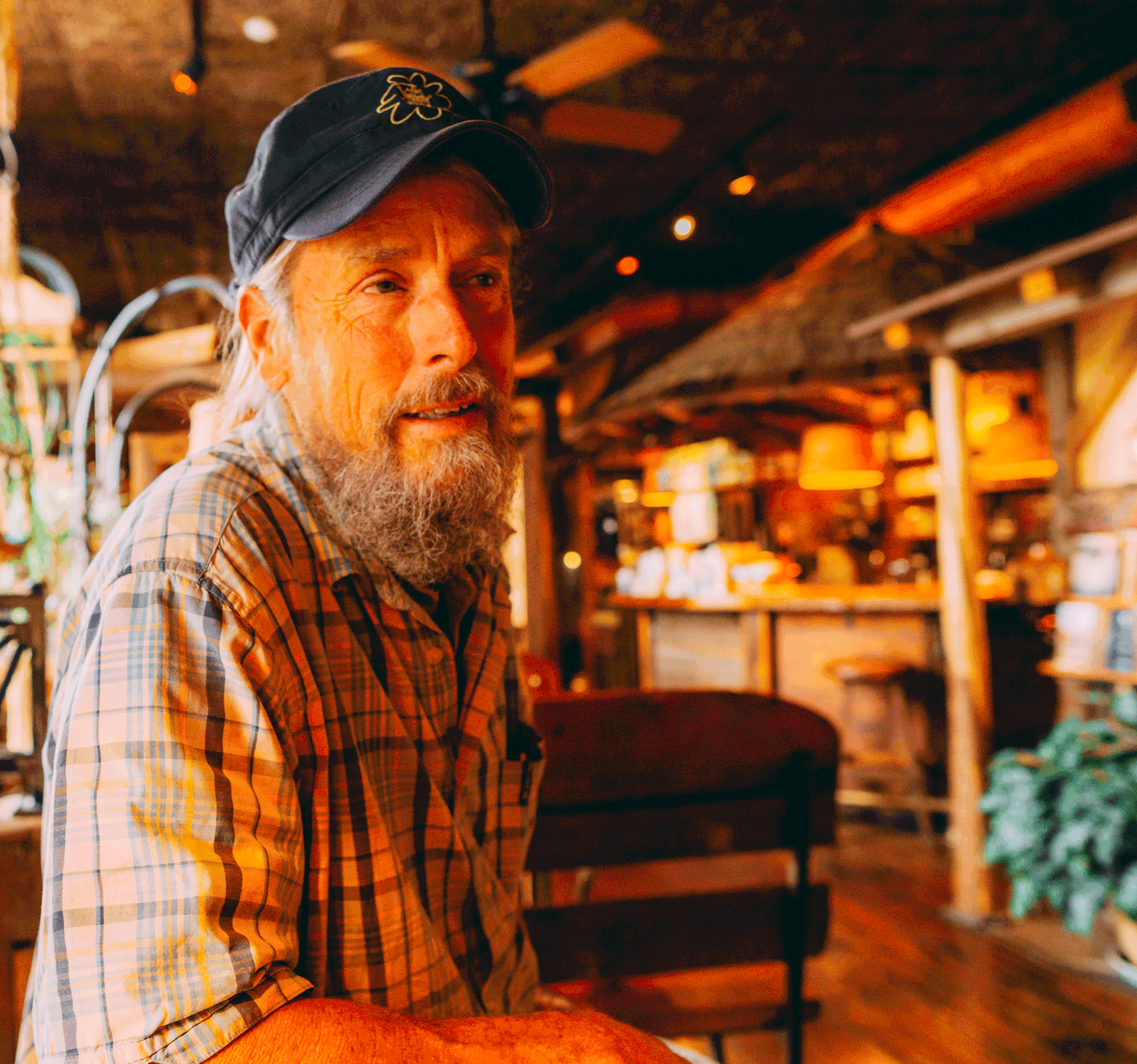
The Twelve Tribes believes that for the messiah to return, the Church needs to be restored to its original form seen in the Books of Acts. The group believes that world is already coming to an end and that they must prepare for when the messiah, “Yahshuva” will return. They insist on using Yahshuva instead of Jesus due to its religious etymology. To prepare for the restoration of the church, they observe the Sabbath and maintain some of the Mosaic law, including dietary restrictions and festivals.
As we continued talking with Brother Rori, he assured us that the Twelve Tribes was built on love and unity is what. Their values are utopian: everyone is equal, no one is rich or poor. Everyone has a job, a place to live, and a family of brothers and sisters looking out for one another. Members of the Twelve Tribes supports themselves with other small businesses, and all profits are expected to go into the common pool, as they are expected to give all their belongings to the community and live according to the teachings found in earlier texts of the Bible.
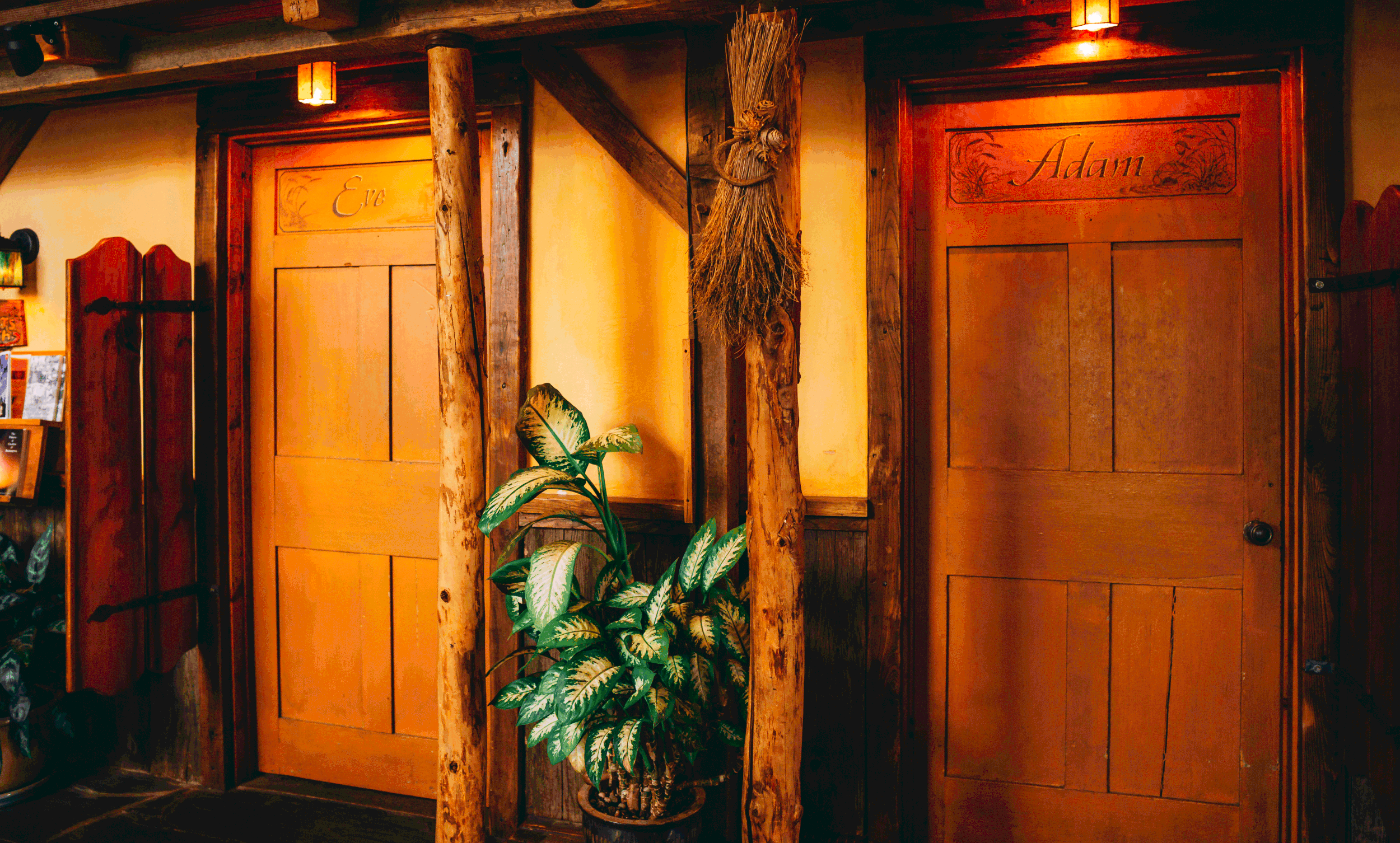
Brother Rori had invited us to come to join their house for a night of dancing, live music, and love, which we had politely declined. As we left, we were left wondering, who were these people, and what more can we find on them?
Our real investigation did not commence until after we left Yellow Deli. As we looked online, the Twelve Tribes has a history of controversy. The group interprets the Bible literally, holding outdated views on the treatment of women, people of color, and the LGBT community. They have come under fire for their use of biblical corporal punishment, especially against the women and children in their society to keep them in line. Former members of the community have come out to discuss the treatment of women. They claim women are expected to submit to the judgment and authority of their fathers and husbands. Furthermore, they are expected to have children and raise them, perform household chores, marry from within the community, all while living subordinately.
As aforementioned, the children are subject to corporal punishment. The community believes that discipline and obedience is necessary to ensure that their children are raised according to the scripture. These children are home-schooled and are not allowed to play with toys or engage in any fantasy play. If you search online, you’ll find many testimonies from ex-members about the abuse that they faced as children growing up. You’ll also find stories of communities being investigated and raided for allegations of child and labor abuse, particularly in areas of Germany and France. (https://www.apologeticsindex.org/2702-twelve-tribes)
Two female students of SUNY Oneonta provided us with some more insight into what they had experience in speaking with one of the members. The students told us that the community doesn’t believe in modern medicine and many of the members don’t use technology and have isolated themselves from their families. The students too were invited to join the community at their house for a party, though they did not attend.
Former Members have spoken out against the racism, abuse, cult-like practices, and other anti-Semitic allegations that they were subjected to. We don’t know the truth about what goes on behind closed doors. To the outside, they look like a tight-knit family that embraces love and unity. To others, they look like a religious cult influenced by the indoctrinations of Karl Marx. (https://www.thedailybeast.com/twelve-tribes-the-church-preached-child-abuse-and-slavery)
As Brother Rori told us, “Everyone has a story.” We couldn’t tell if Brother Rori was truly happy about where his journey took him, but that wasn’t for us to decide. We can only gauge that this community understands the importance of appearances, as evidenced by the contrived atmosphere of Yellow Deli.
As you’ll find with a lot of members that escape these communities and cults, their stories are eerily similar. When they were participating, they were not truly aware of what they were practicing. It was not until they escaped, that they understood the true magnitude of issues that would seem so glaring to an outsider.
Story Editor and Photo Contributor: @samantha.sklar






